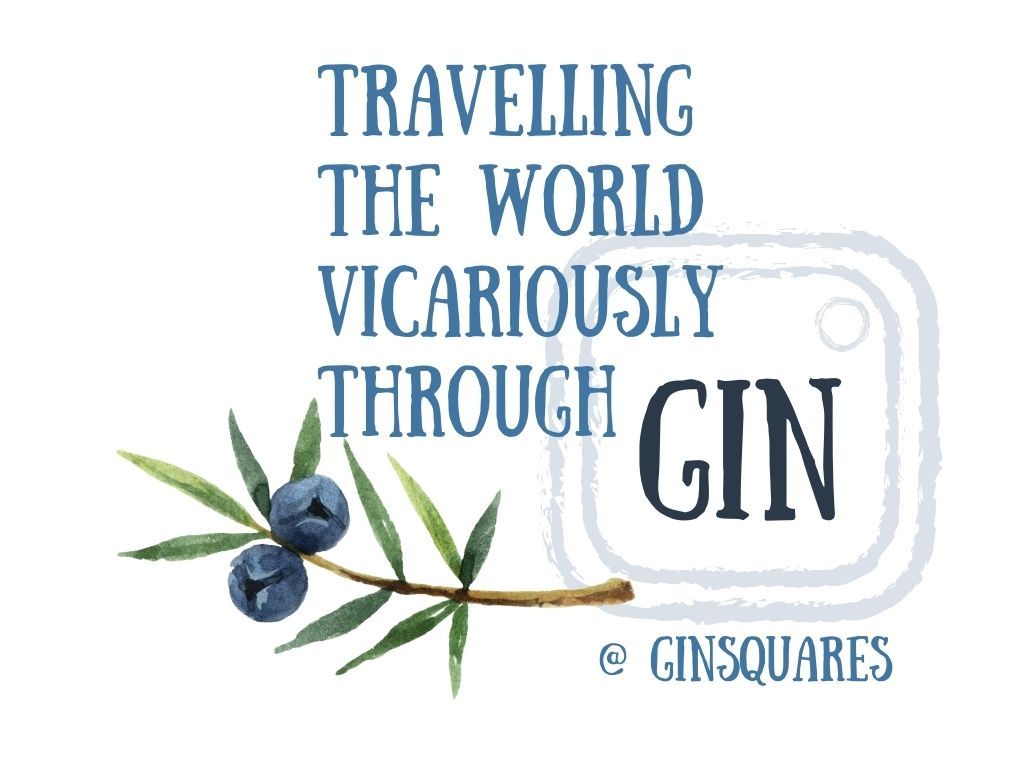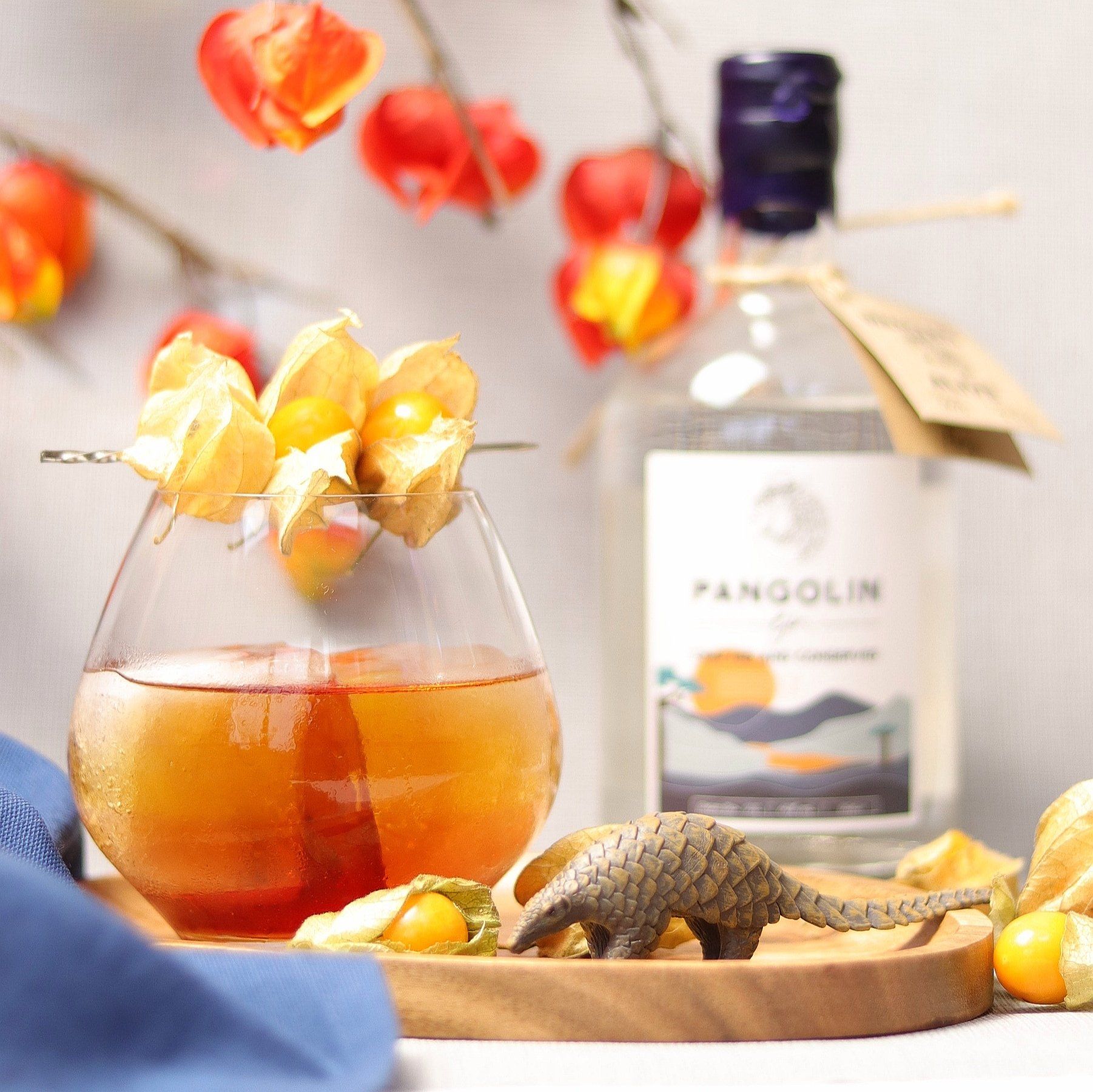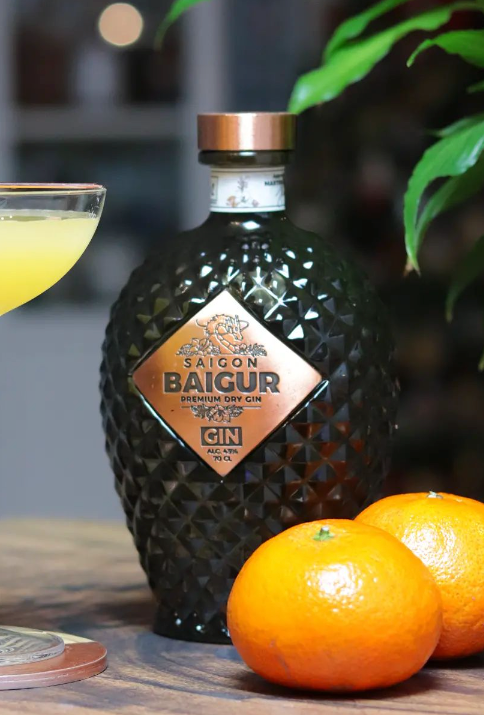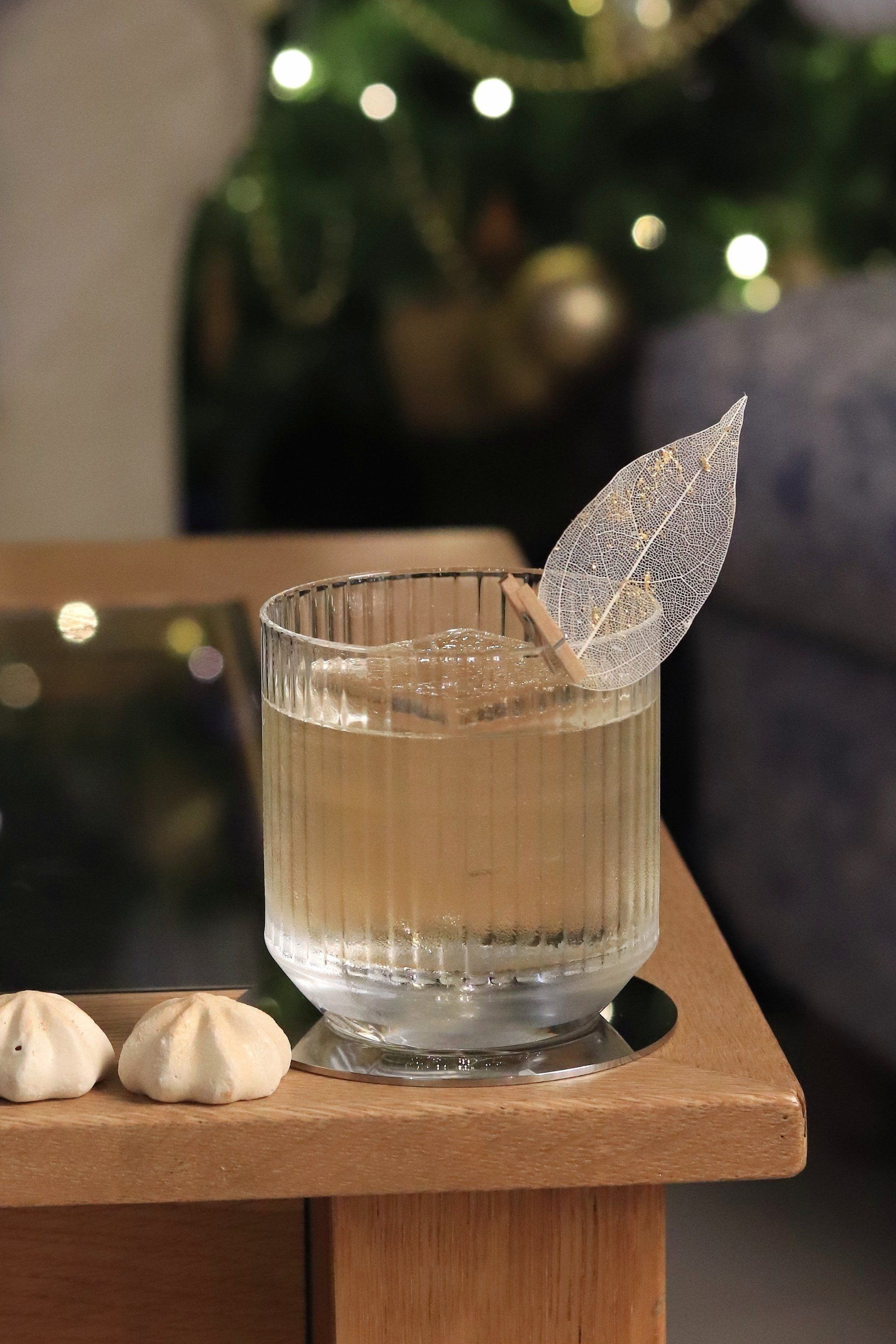AFRICAN SUNDOWNERS

There is no better way to round off a perfect day exploring the African bushveld, than with a sundowner. The sundowner is Africa’s happy hour, when you chill with a glass of something cold in hand and watch the sun paint the sky shades of red, orange and pink as it dips below the horizon. This is the transition into evening, when you wind down after a busy day, relax and take in the view.
The sundowner started back in colonial times, when a gin and tonic was consumed out of necessity, the quinine helping protect against malaria. Today it’s an excuse to meet up with friends and enjoy their company and more often eat, drink and be merry in a gorgeous setting.
But why do I mention sundowners – well, it’s because this is how and why Pangolin Gin was created. Chris, the founder, is a lover of wildlife and travel and on a recent holiday to South Africa where he went on several game drives, he learned about the plight of the pangolin. He openly admits that he had never heard of a pangolin before and he was shocked to learn that they are one of the most trafficked animals in the world.
How is this possible? Most trafficked and never heard of does not make sense when in a single sentence. I too only learned about the plight of the pangolin a few years ago when I saw a programme about Maria Diekmann, a conservationist, who lives in Namibia and who not only rescues pangolins, but also several other endangered species, through her charity REST Namibia. Pangolins are mostly nocturnal, so even though I’m from South Africa and have been on several game drives and some at night, I’d never heard of them either so I found the programme really informative and interesting and have never really forgotten it.
The programme focussed on Honey Bun, a mischievous pangolin that she rescued and I was shocked to learn how they are hunted and killed, not only for bushmeat in Africa, but mainly for their scales, which are used in Chinese medicine. There is nothing magical about their scales – they are made up of keratin, just like your hair and nails, but that has not stopped illegal trade and the statistics are shocking.
You can learn more about Maria’s work on her website, but you can also watch some cute videos about Honey Bun on YouTube.
The belief that pangolin scales have magical and curative properties drives the large-scale trafficking and there is also demand for their meat which sells for up to $350 per kilo. Having read some articles, I’m assured that this meat is pungent and unpleasant, but it’s seen as a delicacy and luxury in some African countries. It’s also claimed that the scales, either ground, buried or burned, will neutralise witchcraft and evil spirits, improve cattle health, keep lions away, cure simple ailments such as nosebleeds or that a sighting of a pangolin will cause a drought, so they are hunted by tribes in certain areas of Africa. But worst of all is the fact that the scales and meat are consumed in Asian countries and specifically used in Chinese medicine - thought to provide cures for anything from cancer to period pains.
Chris felt that he could not ignore this and so by combining his love for wildlife and spirits, he decided to create Pangolin Gin, which he is hoping will raise awareness and funds to help save the pangolin from extinction.
Pangolin Gin has recently partnered with the Born Free Foundation, a leading wildlife charity, and has committed to donate 10% of their profits to the Sangha Pangolin Project and also help promote the Adopt a Pangolin scheme. You can learn more about this at the following links:
If you have never heard of a pangolin before, you are not alone, so what are they?
Although they have the appearance of a prehistoric reptile, perhaps a cross between an anteater and an armadillo, they are actually mammals and the only scaled mammal in the world. They are found in a variety of habitats, including tropical and savannah grassland. Their scales are kept sharp due to all the burrowing they do and are what protect them from predators, as they roll themselves into a tight ball and defend themselves using their tails. Their diet is predominantly ants, termites and larvae and they use their long, sticky tongues to pick up their food. They play an important role in the ecosystem, consuming more than 70 million insects annually. This specialist diet is what makes them so difficult to rear in captivity and in most cases, they don’t survive long when fed foreign food, so it makes rescuing them extremely difficult.
There are eight pangolin species across Africa and Asia and they are all protected under national and international laws, but are all still illegally traded. China increased protection for the native Chinese Pangolin this year and the government no longer allows the use of pangolin scales in traditional medicine. This is a big win given that an estimated 195,000 pangolins were trafficked in 2019 for their scales alone, however there are always loopholes and I’ve read about claims that they are using up “stockpiles of scales” and that pangolin scales are still listed as ingredients in some medicines. There are even claims that they are the cause of the coronovirus, which is ridiculous, as we know this was more about human behaviour, but I’m not even going to elaborate here, as it’s a controversial subject and there are enough articles out there about it. It’s a mammoth of a task to educate and raise awareness, so that we can stop the hunting of the pangolin and prevent the extinction of this species. As a ginlover, we can do our bit, by consuming Pangolin Gin and supporting the initiatives that they are involved in.
Pangolin Gin has been contacted distilled at the Paper Mill Distillery at Staffordshire Brewery and several unique African botanicals have been selected to form the core of this gin. These include rooibos and honeybush, as well as baobab which together with orange peel and grapefruit form the basis of a solid London dry gin but also capture the essence of the African sundowner. It’s a good solid gin, with good intentions at its heart. You can purchase this on their website, Amazon or Master of Malt. Chris assures me that there is more to come from Pangolin Gin, with some special and limited editions in the pipeline. If you are going to do one good thing today, check out the link above to the Born Free Foundation and sponsor a pangolin – I will certainly be doing so too.
As this is such a bitter-sweet story, I’ve opted for a negroni-riff as my sundowner serve.
PANGO’S SUNDOWNER
50ml Pangolin Gin
50ml Barbadillo Fino, infused with honeybush tea
50ml Amaro Montenegro
50ml Mangajo Red Grape & Rooibos Tea
Garnished with bright yellow orbs of Cape Gooseberry to represent the setting sun
You can learn more about Pangolin Gin on their website and learn more about their ambassador, Pango.
Gin gifted

For the past few years I've set myself a 12 Days of Christmas challenge with a gin-twist! The theme is loosely based on the song "Twelve Days of Christmas" and it's a gin-terpretation (yes, a made up word!) of the song! I have posted brands and cocktails which relate to each of the 12 gifts and last year chose to use gins that had numbers in their branding. Whilst this is a personal challenge, it's open to everyone, so if you want to join in for a few or all of the days, then please do feel free - just tag me and I'll reshare!
It's a bit early for clover but I did manage to find a few leaves poking out the ground and they were perfect to use for a post for St Patrick's Day. Other foliage or flowers work and even citrus peel, so if you aren't trying to theme your cocktails, then you can just pretty them up with something else. Sometimes condensation is enough to hold light objects onto the glass, but it wasn't working this time, so I had a trick up my sleeve!

Compiling a list of my top 10 gins is almost impossible, as what I feel like drinking will change daily depending on my mood. I enjoy gins that are different, but they may not be for everyone, so if you are looking to get into drinking gin or want to try something new, then this is a list of classic gins, which are excellent value for money and won't disappoint. All of these brands have a good range, including some flavoured gins, so there should be something for everyone in this list! Are there other brands on my shelf which are worthy of inclusion in a top 10 list? Yes of course and I may be a little biased as I've visited most of these distilleries and they all have something different to offer and make excellent spirits. However, they are all good starting points for those new to drinking gin and wanting to learn a little bit more about the history and how gin is made. Click on the links or photos to be taken to the brand websites or my reviews on Instagram .

Given this week is National Storytelling Week, I thought I would expand on my Top 10 favourite Gin Stories and share them again with you all in more detail. They are not in any particular order and although they are all good gins, it's impossible to make a list of my 10 favourite gins, as I have too many! If you want to read more of my gin stories, they are part of my Virtual Gin Tours which are either on my Instagram account or filed here on my website too for easy reading. Hope you enjoy reading them as much as I enjoyed researching and writing them all. Allison As seen in The Daily Mail














